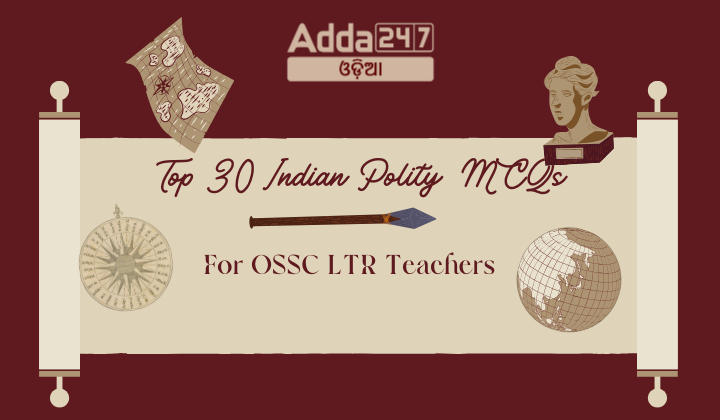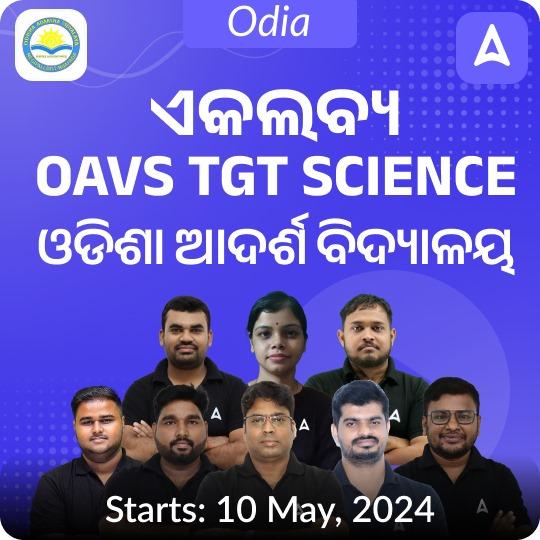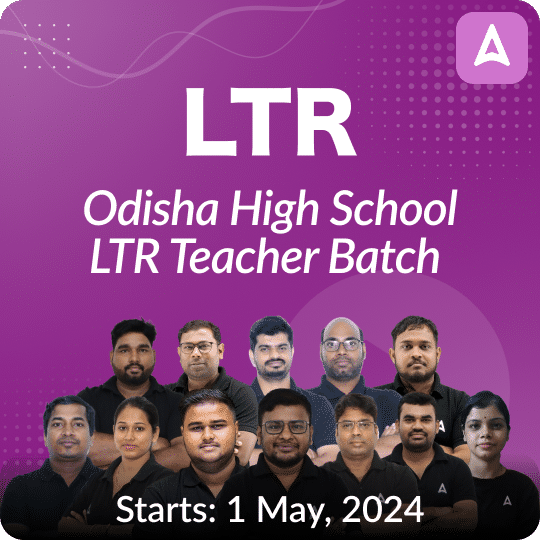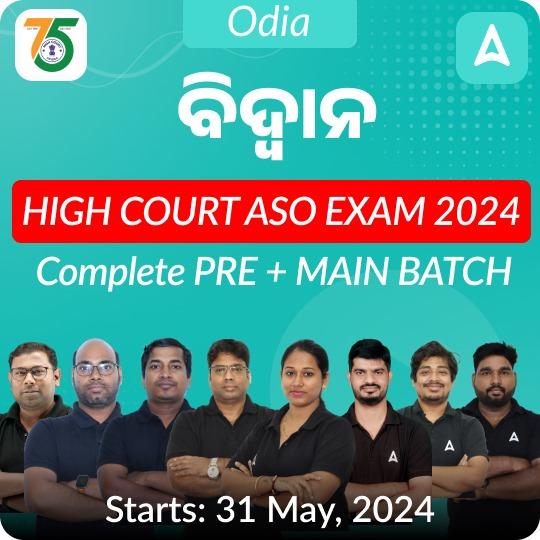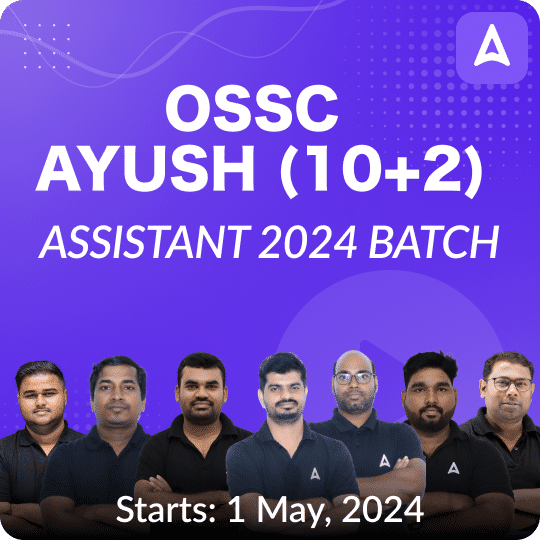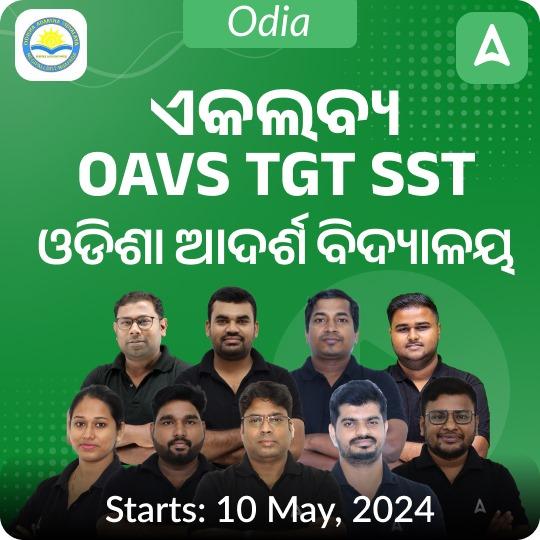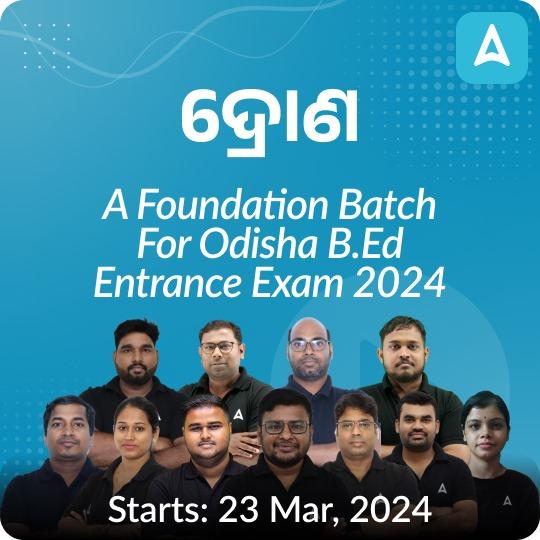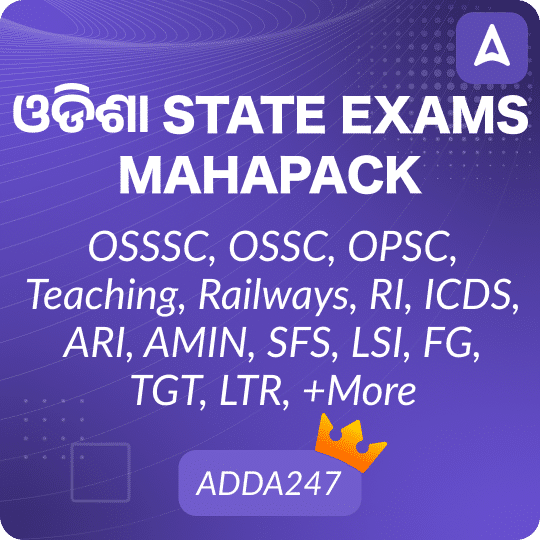Prepare for the OSSC LTR Teachers Exam with these top 20 Polity MCQs. Covering essential topics like the Constitution, fundamental rights, and government structures, these questions are tailored to help you strengthen your knowledge and boost your confidence for the upcoming exam.
Top 20 India Polity MCQs For OSSC LTR Teachers 08 November 2024
Q1. Who proposed the idea of a Constituent Assembly for India in 1934?
(a) Jawaharlal Nehru
(b) Mahatma Gandhi
(c) M.N. Roy
(d) B.R. Ambedkar
Ans: (c) M.N. Roy
Sol: M.N. Roy, a pioneer of the communist and radical humanist movement in India, proposed the idea of a Constituent Assembly in 1934.
Q2. When was the first meeting of the Constituent Assembly held?
(a) 11th December 1946
(b) 9th December 1946
(c) 22nd July 1947
(d) 26th January 1950
Ans: (b) 9th December 1946
Sol: The Constituent Assembly’s first meeting took place on 9th December 1946 with 211 members present.
Q3. Who was appointed the first temporary President of the Constituent Assembly?
(a) Dr. Rajendra Prasad
(b) Dr. Sachidanand Sinha
(c) H.C. Mukherjee
(d) Jawaharlal Nehru
Ans: (b) Dr. Sachidanand Sinha
Sol: Dr. Sachidanand Sinha served as the temporary President for the inaugural session of the Constituent Assembly.
Q4. Which constitutional advisor helped draft the Indian Constitution?
(a) B.N. Rau
(b) K.M. Munshi
(c) Alladi Krishnaswamy Iyer
(d) H.C. Mukherjee
Ans: (a) B.N. Rau
Sol: B.N. Rau was appointed the constitutional advisor and played a pivotal role in drafting the Indian Constitution.
Q5. What was the main source of India’s federal structure?
(a) U.S. Constitution
(b) Government of India Act, 1935
(c) Canadian Constitution
(d) British Constitution
Ans: (b) Government of India Act, 1935
Sol: The federal structure of India, including powers between the center and states, was largely derived from the Government of India Act, 1935.
Q6. Which feature of the Indian Constitution was inspired by the Irish Constitution?
(a) Fundamental Rights
(b) Directive Principles of State Policy
(c) Fundamental Duties
(d) Emergency Provisions
Ans: (b) Directive Principles of State Policy
Sol: The Directive Principles of State Policy were adopted from the Irish Constitution to guide the governance of the state.
Q7. The concept of ‘single citizenship’ in India is borrowed from which constitution?
(a) U.S. Constitution
(b) British Constitution
(c) Australian Constitution
(d) Canadian Constitution
Ans: (b) British Constitution
Sol: Single citizenship, where individuals are citizens of the nation and not their respective states, is a concept derived from the British Constitution.
Q8. Which country’s Constitution influenced the inclusion of Fundamental Rights in India?
(a) Ireland
(b) United States
(c) Australia
(d) France
Ans: (b) United States
Sol: Fundamental Rights in the Indian Constitution were inspired by the U.S. Constitution’s Bill of Rights.
Q9. The provision of judicial review in India is influenced by the Constitution of which country?
(a) United Kingdom
(b) United States
(c) Ireland
(d) Canada
Ans: (b) United States
Sol: The concept of judicial review, allowing courts to declare laws unconstitutional, is borrowed from the U.S. Constitution.
Q10. From which country’s Constitution was the concept of the ‘Concurrent List’ adopted?
(a) Australia
(b) Canada
(c) Germany
(d) United Kingdom
Ans: (a) Australia
Sol: The idea of a Concurrent List, where both the central and state governments can legislate, is borrowed from the Australian Constitution.
Q11. Which country’s Constitution served as the basis for the parliamentary system in India?
(a) Canada
(b) United Kingdom
(c) United States
(d) Ireland
Ans: (b) United Kingdom
Sol: India’s parliamentary system, including the roles of the Prime Minister and Cabinet, is modeled after the British parliamentary system.
Q12. Who was the permanent President of the Constituent Assembly?
(a) Dr. Rajendra Prasad
(b) B.R. Ambedkar
(c) Jawaharlal Nehru
(d) Dr. Sachidanand Sinha
Ans: (a) Dr. Rajendra Prasad
Sol: Dr. Rajendra Prasad was elected as the permanent President of the Constituent Assembly.
Q13. From which Constitution did India borrow the concept of ‘Procedure Established by Law’?
(a) United States
(b) Japan
(c) Germany
(d) United Kingdom
Ans: (b) Japan
Sol: The concept of ‘Procedure Established by Law,’ used for restricting fundamental rights, is borrowed from the Japanese Constitution.
Q14. Who proposed the Objective Resolution in the Constituent Assembly?
(a) Dr. B.R. Ambedkar
(b) Jawaharlal Nehru
(c) Dr. Rajendra Prasad
(d) H.C. Mukherjee
Ans: (b) Jawaharlal Nehru
Sol: Jawaharlal Nehru proposed the Objective Resolution, which laid the foundation of the Indian Constitution.
Q15. What was the source for India’s emergency provisions?
(a) Canadian Constitution
(b) Weimar Constitution of Germany
(c) French Constitution
(d) Soviet Constitution
Ans: (b) Weimar Constitution of Germany
Sol: Emergency provisions, including suspension of fundamental rights, were influenced by the Weimar Constitution.
Q16. The ideals of Liberty, Equality, and Fraternity were inspired by which country’s Constitution?
(a) United States
(b) France
(c) Germany
(d) Ireland
Ans: (b) France
Sol: The Preamble of the Indian Constitution draws its inspiration for liberty, equality, and fraternity from the French Constitution.
Q17. The idea of Public Service Commissions was taken from which Act?
(a) Indian Independence Act, 1947
(b) Government of India Act, 1919
(c) Government of India Act, 1935
(d) Montague-Chelmsford Reforms
Ans: (c) Government of India Act, 1935
Sol: Public Service Commissions for recruiting civil servants were introduced by the Government of India Act, 1935.
Q18. The division of powers between the Union and States in India is based on the Constitution of which country?
(a) United Kingdom
(b) Canada
(c) Australia
(d) Germany
Ans: (b) Canada
Sol: India’s federal structure with a division of powers is influenced by the Canadian Constitution.
Q19. From which Constitution was the provision of ‘Suspension of State Governments’ during emergencies borrowed?
(a) British Constitution
(b) Weimar Constitution
(c) U.S. Constitution
(d) French Constitution
Ans: (b) Weimar Constitution
Sol: The power to suspend state governments during constitutional emergencies in India was inspired by Germany’s Weimar Constitution.
Q20. The first Speaker of Independent India was:
(a) G.V. Mavalankar
(b) Dr. Rajendra Prasad
(c) B.R. Ambedkar
(d) Jawaharlal Nehru
Ans: (a) G.V. Mavalankar
Sol: G.V. Mavalankar was the first Speaker of the Lok Sabha in Independent India.


